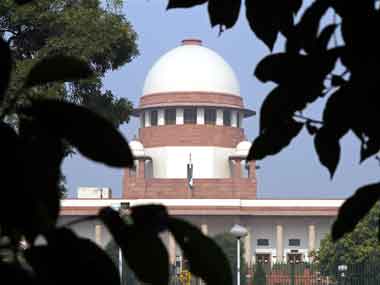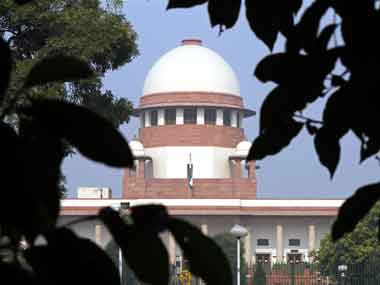On Wednesday, the Supreme Court of India had harsh words for the Central Bureau of Investigation (CBI) and Law Ministry officials for vetting and changing the status report on the Coalgate investigations (read here). But when it came to turning words into action, this is what we got: the next hearing on the matter will be on 10 July. Mark the date. A nationally important issue that could rock the government is going to be heard two months hence. [caption id=“attachment_767021” align=“alignleft” width=“380”]  Supreme Court of India. Reuters[/caption] In another case yesterday, in which market watchdog Sebi has sought court sanction for taking strong action against the recalcitrant Sahara Group, the Supreme Court declared that any repayments made to investors in two of its companies after 31 August 2012 would not be accepted (read here). In a judgment dated 31 August last year, the court had ordered Sahara to return Rs 24,000-and-odd crore to investors in optionally fully convertible debentures (OFCDs) because they were illegally raised. But the Sahara group has been running rings around Sebi and claiming that all the money, barring a small amount, has already been repaid. After giving Sahara a verbal rap on the knuckles, the court posted the next date for a hearing as 17 July 2013. Again, mark the date. It’s more than two months hence. Contrast that with the original date on which Sebi ordered Sahara to return the money: June 2011. Two years later, Sahara is still at it, and the Supreme Court is allowing it to happen. Why do such important orders pending in early May have to be posted for dates two months from now? The bald answer is this: the court is on a summer vacation from 11 May to 1 July – nearly 50 days. Even school vacations these days are shorter in summer, except may be for kindergarten kids. The Delhi High Court will be on vacation the whole of June, the Bombay High Court from 14 May to 9 June, and the Madras High Court from 1 May to 2 June. All have further vacations for Diwali and Christmas and New year. It’s much lesser than the Supreme Court, but even these vacations are simply too much. Justice cannot take such long breaks. Why does the apex court, which had as many as 67,320 cases of various kinds pending before it, need such a long siesta? One can understand hard-worked judges needing longish vacations, but courts as a whole? Sure, there are vacation judges available to handle urgent cases that can’t wait for their Lordships to return from their R&R, but this will not apply to Coalgate or Sahara because these matters are already being heard. Consider what would happen if every institution went on a vacation as long as the Supreme Court. Your local police station? Criminals would be thrilled. Or your property, birth and death registration offices? There would be a public outcry. The Supreme Court gets away lightly because, by and large, the people of India have a high respect for the institution’s independence and integrity. But if we accept the basic premise that justice delayed in justice denied, the Supreme Court’s vacation is unacceptable. Let’s remember that the Coalgate scam is now more than 18 months old. The Sahara case has been going on in the Supreme Court since end-2011. The final order of the Supreme Court in the Sahara case came on 31 August 2012, but even now, nearly nine months later, the Saharas continue to cock a snook at the Supreme Court, and they have just been given two more months to flout the orders. Does the Supreme Court not realise how long cases are being dragged even in the normal course of things? Adding a vacation delay is simply unconscionable. It is time their Lordships themselves gave up on their little privileges to serve the causes of justice better. Supreme Court judges surely don’t need longer vacations than your average school kids.
Does the Supreme Court not realise how long cases are being dragged even in the normal course of things? Adding a vacation delay is simply unconscionable.
Advertisement
End of Article
Written by R Jagannathan
R Jagannathan is the Editor-in-Chief of Firstpost. see more


)

)
)
)
)
)
)
)
)



